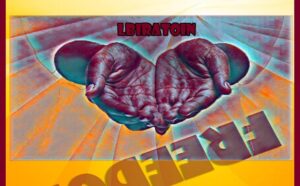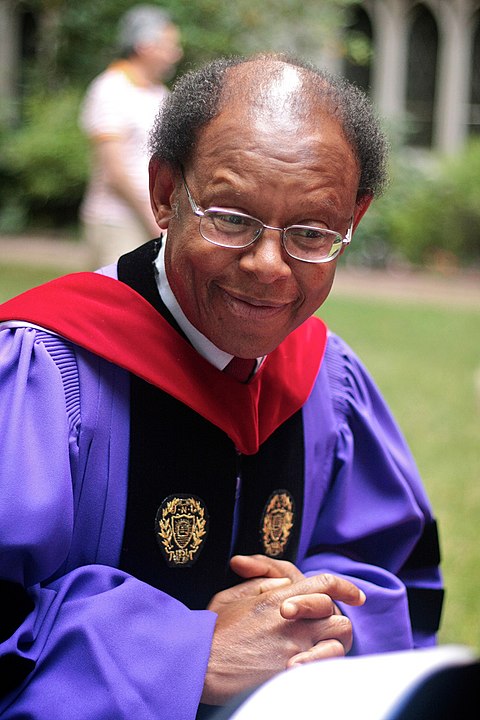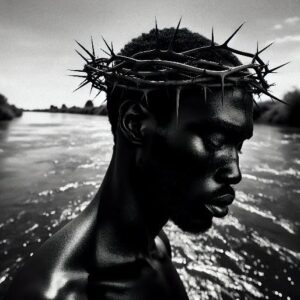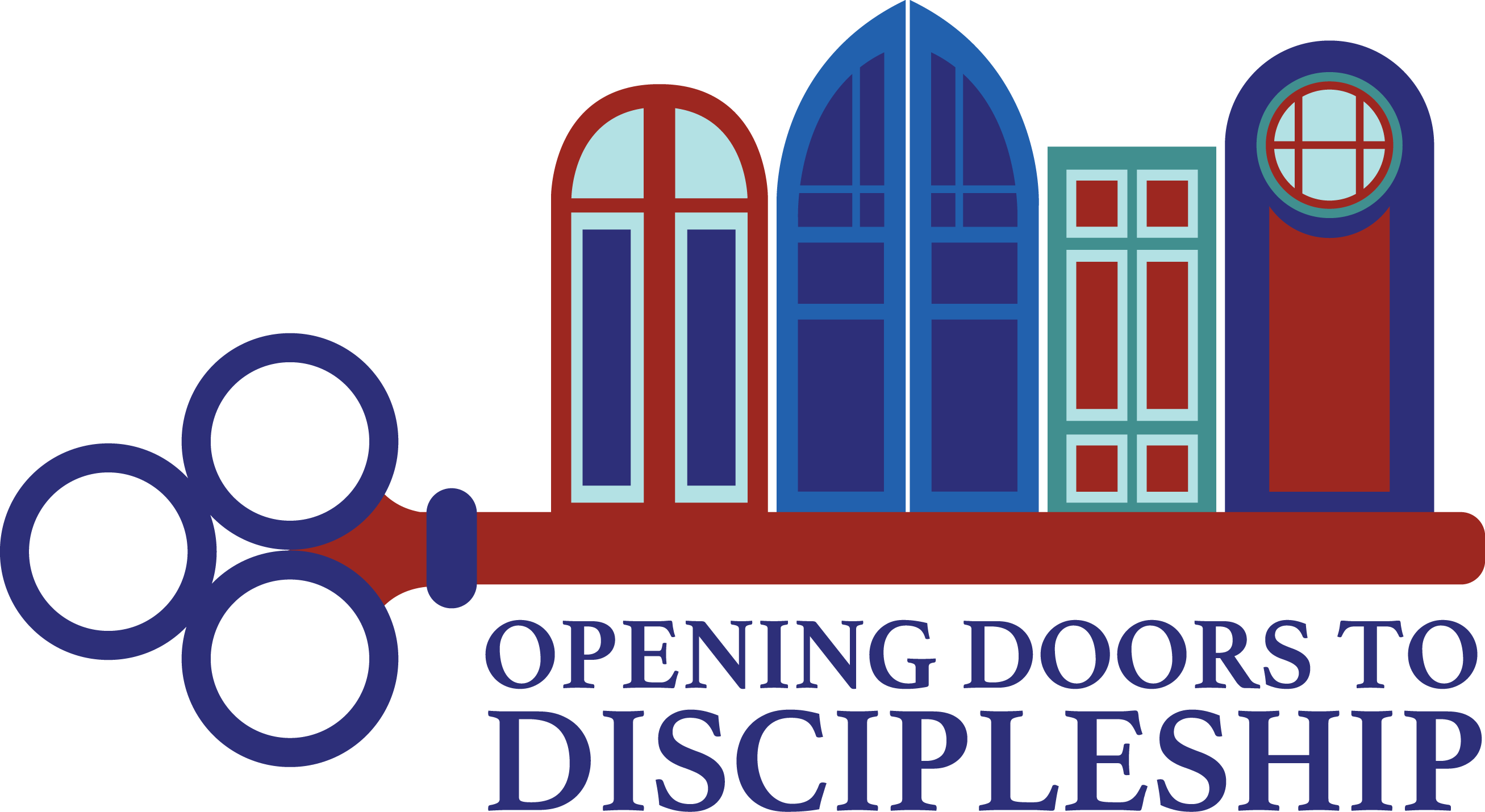Engaging this module
You are invited to explore this module by reading the content, watching the presentations and videos and responding to the suggested exercises and activities. You are encouraged to have a Bible and journaling materials nearby to take notes. The module is divided into 4 lessons, each of which can be accessed by clicking the buttons below the introduction.
What is Liberation Theology?
Liberation theology is a religious movement that focuses on the active pursuit of justice on behalf of those oppressed due to systems of economic, political and societal inequality. At its core, liberation theology affirms that God stands with the poor and Jesus intimately identifies with their struggle. Jesus himself was born into poverty and experienced economic, racial, political, and societal discrimination and rejection. (Luke 2:7-24; Luke 4:28-29) These experiences emphasize his identity as a freedom fighter and his advocacy and mission with God’s purpose to set the oppressed free as aptly proclaimed in Isaiah 61:1-11:
The spirit of the Lord God is upon me,
because the Lord has anointed me;
he has sent me to bring good news to the oppressed,
to bind up the broken-hearted,
to proclaim liberty to the captives,
and release to the prisoners;
2 to proclaim the year of the Lord’s favour,
and the day of vengeance of our God;
to comfort all who mourn;
3 to provide for those who mourn in Zion—
to give them a garland instead of ashes,
the oil of gladness instead of mourning,
the mantle of praise instead of a faint spirit.
They will be called oaks of righteousness,
the planting of the Lord, to display his glory.
4 They shall build up the ancient ruins,
they shall raise up the former devastations;
they shall repair the ruined cities,
the devastations of many generations.
5 Strangers shall stand and feed your flocks,
foreigners shall till your land and dress your vines;
6 but you shall be called priests of the Lord,
you shall be named ministers of our God;
you shall enjoy the wealth of the nations,
and in their riches you shall glory.
7 Because their shame was double,
and dishonour was proclaimed as their lot,
therefore they shall possess a double portion;
everlasting joy shall be theirs.
8 For I the Lord love justice,
I hate robbery and wrongdoing;
I will faithfully give them their recompense,
and I will make an everlasting covenant with them.
9 Their descendants shall be known among the nations,
and their offspring among the peoples;
all who see them shall acknowledge
that they are a people whom the Lord has blessed.
10 I will greatly rejoice in the Lord,
my whole being shall exult in my God;
for he has clothed me with the garments of salvation,
he has covered me with the robe of righteousness,
as a bridegroom decks himself with a garland,
and as a bride adorns herself with her jewels.
11 For as the earth brings forth its shoots,
and as a garden causes what is sown in it to spring up,
so the Lord God will cause righteousness and praise
to spring up before all the nations.
LESSON 1
Various Liberation Theology Movements
Recognizing that different communities experience marginalization in different ways, liberation theology has developed into liberation theologies—for example, Latino/a and mujerista theologies, Native American liberation theology, and LGBTQIA+ theology. However, this module will focus on the important figures and themes of Black liberation theology in the United States.
Liberation theology sees the mission of the Church not only as one of spiritual salvation but also as a call to empower the marginalized and challenge oppressive structures through faith, social action, education and solidarity. As Peruvian theologian Gustavo Gutierrez states, liberation theology highlights God’s “preferential option for the poor,” faithfully proclaiming that God’s concern for the oppressed should inspire and guide the Church’s love and affirmation in the world. The church must be a source for direct societal change and must continue to meet the challenges of injustice through greater dialogue, bold witness, and truth to power advocacy.
In his essay, “Black Religion” (Journal of ITC, Fall 1993), Presbyterian theologian and scholar Rev. Dr. Gayraud Wilmore explained the scope and history of liberation theology as a call to action against widespread poverty, social injustice, and political oppression. Wilmore stated that liberation theology became a major topic among theologians on both sides of the Atlantic in the 1960s, and in such ecumenical circles as the World Council of Churches. The 1960s were a period of intense social upheaval, marked by dictatorships, human rights abuses, educational inequities, and economic disparities around the world. For Black Christians in South Africa, Black churches and civil rights leaders in the United States, and oppressed campesinos and barrio-dwellers in Latin America, liberation theology asserted the need for the Church to actively advocate for the rights and dignity of poor and marginalized populations.
Reflection and Discussion
What do you see, feel, and experience in this image?
How does this image reflect the message and theology of liberation?

How does liberation theology, with its emphasis on God’s preferential option for the poor and Jesus’s identification with the oppressed, challenge and inspire your understanding of the Church’s role in addressing economic, political, and societal inequalities?
In what practical ways can your faith community embody this mission of justice and solidarity?
Activity
Draw a picture or journal your thoughts about liberation theology.
Prayer
Merciful God,
Grant us the wisdom to understand what it means to be made in Your image. We recognize Your love for the world, which is reflected in the rich diversity of cultures and races. You have created a space where all people can glorify You through our affirmation and celebration of one another.
We thank You for Jesus Christ and His mission to embody Your image by loving and embracing those who have been marginalized and outcast. Inspire us with courage and strengthen our faith as we strive to seek justice and equity for the oppressed.
Help us to see the image of Your grace in the lives of those who suffer injustice. Guide us in Your ways and anchor us in Your love and truth as we work toward a world that reflects Your kingdom. Amen.
Lesson 2

“Black Liberation Theology is not only a moral imperative but is integral to the mission of Jesus Christ, who embodied radical love and stood in solidarity with the marginalized, challenging systems of oppression and proclaiming liberation for all.”
-James Cone
What is Black Liberation Theology?
On July 31, 1966, 51 black pastors who were a part of the National Committee of Negro Churchmen bought a full-page advertisement in the New York Times. They posted a black power statement that called for an end to racism in America. Using the Bible as their source for transformation, expectation, and advocacy, these theologians called for a new freedom and liberation against structures of systemic racism and abuses of power. Their premise was that all of society must actively care about what God cares about; and because God cares deeply for the oppressed and Jesus stands on the side of the poor and marginalized, racism has no place in God’s kingdom on earth. Black Liberation Theology gained prominence as a rallying call for the Black Church to demand equality and equal rights because this justice aligns with the justice of God through Jesus Christ.
Moreover, God does not only side with the oppressed but demonstrates solidarity with the marginalized. As Anthony Pinn has expressed, “God’s presence in the world is best depicted through God’s involvement in the struggle for justice… God is so intimately connected to the community that suffers, that God becomes a part of that community.” (A Closer Look at Black Liberation Theology, National Public Radio, 2008)
Pinn’s statement points to the pioneering work of James Cone, known as the father of Black Liberation Theology. In 1967 Cone wrote the first book on Black Theology (Black Power and Black Theology). In this book, Cone merged the context and culture of the civil rights movement and the Black Power movement to build a theological framework for Black Liberation Theology. Cone’s work and subsequent writings offer a reevaluation of and expansion on traditional theology by presenting the Trinity through the lens of the African American experience. This experience includes the trauma, insult, human indignity of chattel slavery, Jim Crow legislation, segregation and the continued fight for justice. The songs and worship of the Black church have been a part of the long struggle for freedom, reflecting Jesus as one who carries an intimate connection with those who have been subjected to inequities and inequalities throughout society. It is Jesus who understands what is means to be Black, oppressed and living under the confines of systemic racism and oppression. This divine bond, forged in solidarity with God, is a testament and affirmation to being created in the image of justice and freedom. Without it, the resilience to endure, the faith to persevere against the relentless tide of adversity, would be a challenge too deep to endure.
Cone’s work has significantly influenced discourse on race, religion, and liberation, inspiring generations of theologians, activists, and believers to view the Christian faith as a powerful force for social change, justice and racial equality. His contributions have laid the groundwork for a theology that underscores the urgency of challenging power abuses, driven by the belief that God’s cares deeply for the oppressed.
Rev. Dr. Gayraud Wilmore was an ally of James Cone. Together they wrote and edited Black Theology: A Documentary History: 1966-1979. While Wilmore believed that God was on the side of the oppressed, he also believed that Black Liberation Theology should not be limited to Christianity, that all religions should engage the liberation of the oppressed. Other prominent theologians and scholars who influenced social change related to the black religious experience and contributed to the Black Theology movement include J. Deotis Roberts, Joseph Washington, Albert B. Cleage, Major Jones, Cecil Cone, C. Eric Lincoln and Charles Long. Their work is a part of the bedrock of analysis and interpretation that centers the work of womanist theologians and liberators like Katie Cannon, Jacquelyn Grant and Kelly Brown Douglas.
Black Liberation Theology, therefore, is not a trending ideal or an outdated concept of the 1960’s and 1970’s. It is not limited to being a moral imperative but is integral to the mission of Jesus Christ, who embodied radical love and stood in solidarity with the marginalized, challenging systems of oppression and proclaiming liberation for all. It carries its truth and justice into the 21st century, calling the church to confront racism and inequality through dialogue and activism, and to see faith as intertwined with the fight against disparity, and misuse of power. It calls for a Christianity that addresses the root causes of oppression and opens itself to seek Jesus in the call for reparations, reconciliation, criminal justice reform, Black Lives Matter, police reform, health equity, and housing development.
Review
Watch the Video of James Cone deliver remarks on Black Theology and Black Power, and then proceed to the reflection questions.
Reflection and Discussion
Does Black Liberation Theology matter?
Consider the tenants and beliefs that support Black Liberation Theology. Do you think that Black Liberation Theology is relevant in today’s society? Explain your answer.
Reflect on economic, societal, educational support systems and resources within the community or church. Are they adequate for liberating people from marginalized systems and structures? What improvements can be made?
How can the principles of Black Liberation Theology be applied to current global crises such as poverty, refugee displacement, racial discrimination, and climate change?
Think about the specific actions that can be taken by individuals and communities to address current day inequality and inequity.
Activity
Draw a picture or journal your thoughts about what you have discussed.
Prayer
Merciful God,
Grant us the wisdom to understand what it means to be made in Your image. We recognize Your love for the world, which is reflected in the rich diversity of cultures and races. You have created a space where all people can glorify You through our affirmation and celebration of one another.
We thank You for Jesus Christ and His mission to embody Your image by loving and embracing those who have been marginalized and outcast. Inspire us with courage and strengthen our faith as we strive to seek justice and equity for the oppressed.
Help us to see the image of Your grace in the lives of those who suffer injustice. Guide us in Your ways and anchor us in Your love and truth as we work toward a world that reflects Your kingdom. Amen.
Lesson 3
Black Liberation Theology (Sing Freedom)
Scriptural Reference: Exodus 15:1-19
“They shouted and they prayed; they preached and they sang, because they had found something. They encountered a new reality; a new God not enshrined in white churches and religious gatherings.”
– James Cone, The Spirituals and the Blues
Through prayer, praise and worship, the Black church has historically told the story of freedom, release and deep connection with God. Weary souls have found comfort, troubled minds have been assured with singing, praising, clapping and shouting in solidarity with Jesus Christ, the suffering Savior, who heals and restores. Worship has historically been a path to freedom that connects the people with God’s protection and promise of liberation. From secret brush harbors in which enslaved people gathered to pray and sing, to revivals and praise meetings, the Black church has offered a space of belonging for oppressed people to connect with God and experience a reawakening of hope in the presence of trouble and challenge.
In his book The Spirituals and the Blues, James Cone explores the profound impact of spirituals and blues music on the Black community’s religious and cultural life. He highlights how these forms of music served as powerful expressions of faith, resistance, and resilience in the face of oppression. Cone stresses that the vibrancy of worship and spiritual life represents a new reality and a new God not confined to white churches and traditional religious settings. Instead, this new reality is deeply rooted in the lived experiences and struggles of Black people, providing them with a sense of liberation. affirmation and spiritual empowerment.
It was through the spirituals that the gospel was sung with hope, exhortation and resolute faith that God was on the side of the oppressed. From Go Down Moses to Walk Together Children, these songs not only drew upon the deliverance of God, but also connected hearts, souls and minds to Jesus Christ, a freedom fighter who was called to set the oppressed free. To explore further, see https://www.pbs.org/show/gospel/
Review the lyrics of two spirituals
Go Down Moses
Go Down Moses
African American Spiritual
Exodus 5:1
When Israel was in Egypt land,
Let my people go!
Oppressed so hard they could not stand,
Let my people go!
Go down, Moses,
way down in Egypt land,
tell old Pharao
to let my people go!
“Thus spoke the Lord”, bold Moses said,
Let my people go!
“If not I’ll smite your first-born dead!”
Let my people go!
Walk Together Children
Walk Together Children
African American Spiritual
3 John 1:4
Walk together, children, don’t you get weary,
walk together, children, don’t you get weary,
walk together, children, don’t you get weary,
there’s a great camp meeting in the promised land.
Sing together, children, don’t you get weary,
sing together, children, don’t you get weary,
sing together, children, don’t you get weary,
there’s a great camp meeting in the promised land.
Pray together, children, don’t you get weary,
pray together, children, don’t you get weary,
pray together, children, don’t you get weary,
there’s a great camp meeting in the promised land.
Work together, children, don’t you get weary,
work together, children, don’t you get weary,
work together, children, don’t you get weary,
there’s a great camp meeting in the promised land.
Reflection and Discussion
How do the spirituals reflect the lived experiences and struggles of Black people in the context of oppression and the need for liberation?
Consider specific examples from the spirituals “Go Down Moses” and “Walk Together Children” in your response.
James Cone suggests that the Black church offers a new reality and a new understanding of God compared to traditional white churches
Do you agree or disagree? Explain your answer.
How does worship in the Black church serve as a path to freedom and spiritual empowerment?
Explore the role of prayer, praise, and worship in providing comfort, assurance, and a sense of belonging.
Activity
Draw a picture or journal your thoughts about what you have discussed.
Prayer
Merciful God,
Grant us the wisdom to understand what it means to be made in Your image. We recognize Your love for the world, which is reflected in the rich diversity of cultures and races. You have created a space where all people can glorify You through our affirmation and celebration of one another.
We thank You for Jesus Christ and His mission to embody Your image by loving and embracing those who have been marginalized and outcast. Inspire us with courage and strengthen our faith as we strive to seek justice and equity for the oppressed.
Help us to see the image of Your grace in the lives of those who suffer injustice. Guide us in Your ways and anchor us in Your love and truth as we work toward a world that reflects Your kingdom. Amen.
Lesson 4
Black Liberation Theology (Imago Dei)
Scriptural Reference: Genesis 1:26-27
The concept of Imago Dei found in Genesis 1:26-27 denotes the relationship between God and humanity. God has given power and dominion to human beings to be stewards of justice and peace. This power carries an entrusted responsibility to advocate and care for the environment and for each other. As such, the character and attributes of God are manifested through the continual work of redemption, reconciliation, and liberation, which uplifts racial and cultural identities and promotes diversity, dignity, and equality among all people. Black Liberation Theology embraces Imago Dei as an affirmation of God’s purpose to bring freedom to the oppressed. God sent his only son who identifies with the Black experience and stands on the side of the oppressed.
Review
Watch the Video of Dwight Hopkins’ remarks Black Theology and Black Power, and then proceed to the reflection questions.
Reflection and Discussion
What do you see, feel, and experience in these images?


In what ways does Rev. Dr. Dwight Hopkins suggest that Imago Dei is foundational to Black Liberation Theology?
How should the concept of Imago Dei impact our behavior and attitudes towards people who face structures of oppression?
What are actionable ways to advocate for justice within your spheres of influence, based on the teachings of Black Liberation Theology and an understanding of Imago Dei?
Activity
Draw a picture or journal your thoughts about Imago Dei and Black Liberation Theology.
Prayer
Merciful God,
Grant us the wisdom to understand what it means to be made in Your image. We recognize Your love for the world, which is reflected in the rich diversity of cultures and races. You have created a space where all people can glorify You through our affirmation and celebration of one another.
We thank You for Jesus Christ and His mission to embody Your image by loving and embracing those who have been marginalized and outcast. Inspire us with courage and strengthen our faith as we strive to seek justice and equity for the oppressed.
Help us to see the image of Your grace in the lives of those who suffer injustice. Guide us in Your ways and anchor us in Your love and truth as we work toward a world that reflects Your kingdom. Amen.
This module was written by Rev. Chineta Goodjoin is the Pastor of New Hope Presbyterian Church in Anaheim, CA. Originally from Gaffney, SC, she earned a Master of Divinity from Johnson C. Smith Theological Seminary. After starting her ministry as an Associate Pastor in Los Angeles, she founded New Hope, a church known for its justice work and community engagement.
Under her leadership, New Hope has been recognized for advocating health equity and fostering a vibrant church community. Rev. Goodjoin also serves on several boards and is renowned for her preaching. She is married to Reginald, New Hope’s Music Director, and they have a daughter, Nyla. Read more about Rev. Goodjoin here.
